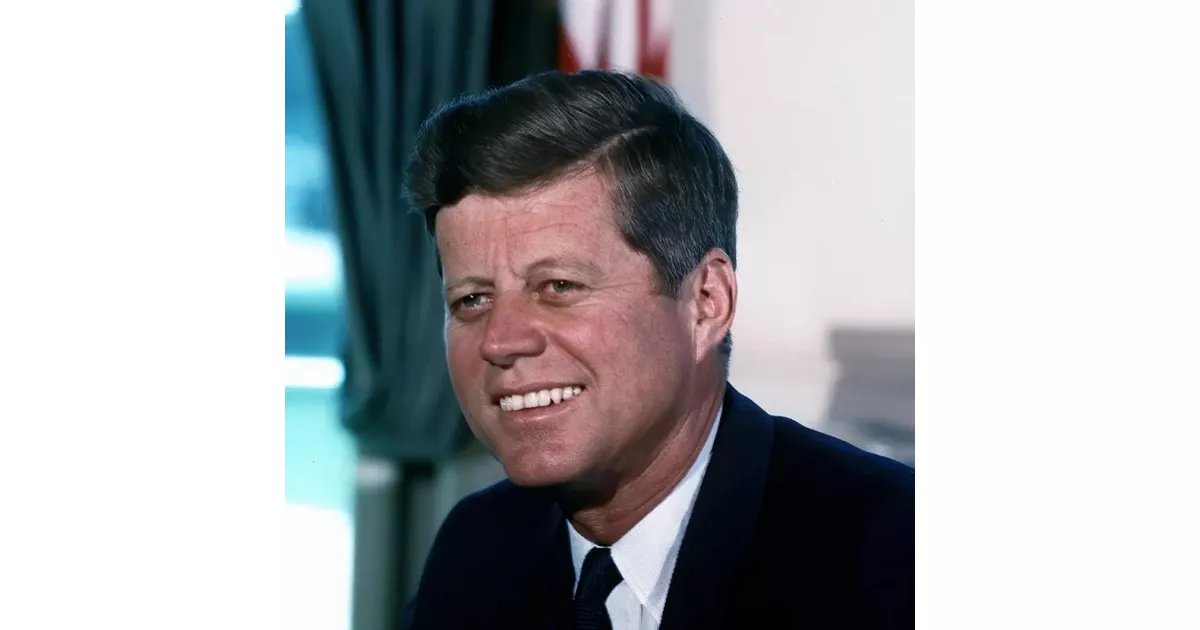John F. Kennedy (JFK) was the 35th U.S. President, serving from 1961 until his assassination in 1963. The youngest person elected president, he led the nation during the Cold War, focusing his foreign policy on relations with the Soviet Union and Cuba. A Democrat, Kennedy previously represented Massachusetts in both the House and Senate.
1901: Theodore Roosevelt Becomes President
In 1901, Theodore Roosevelt became president after the assassination of William McKinley, highlighting that he was younger than Kennedy when he assumed the presidency, albeit through succession, not election.
May 29, 1917: John F. Kennedy's Birth
On May 29, 1917, John Fitzgerald Kennedy, later known as JFK, was born. He would become the 35th president of the United States.
June 19, 1917: Kennedy Baptized
On June 19, 1917, Kennedy was baptized at St. Aidan's Church in Brookline, Massachusetts.
1920: Scarlet Fever Diagnosis
In 1920, three months prior to his third birthday, Kennedy contracted scarlet fever and was admitted to Boston City Hospital.
1922: First Exposure to Politics
In 1922, John F. Kennedy had his first exposure to politics when he toured Boston wards with his grandfather Fitzgerald during his unsuccessful gubernatorial campaign.
September 1927: Family Relocation to New York City
In September 1927, due to an outbreak of polio in Massachusetts and Joe Sr.'s business interests in Wall Street and Hollywood, the Kennedy family relocated from Boston to the Riverdale neighborhood of New York City.
September 1930: Enrolled at Canterbury School
In September 1930, at 13 years old, Kennedy was sent to the Canterbury School in New Milford, Connecticut, for 8th grade.
April 1931: Appendectomy and Withdrawal from Canterbury
In April 1931, Kennedy had an appendectomy, after which he withdrew from Canterbury and recuperated at home.
September 1931: Attendance at Choate
In September 1931, Kennedy began attending Choate, a preparatory boarding school in Wallingford, Connecticut.
June 1934: Hospitalization at Mayo Clinic
In June 1934, Kennedy was admitted to the Mayo Clinic in Minnesota; the ultimate diagnosis was colitis.
June 1935: Graduation from Choate
In June 1935, Kennedy graduated from Choate, finishing 64th of 112 students. He was the business manager of the school yearbook and was voted the "most likely to succeed."
October 1935: Return to US due to ill health
In October 1935, ill health forced Kennedy's return to the United States, when he enrolled late at Princeton University, but had to withdraw after two months due to gastrointestinal illness.
September 1936: Enrollment at Harvard College
In September 1936, Kennedy enrolled at Harvard College, where he wrote for The Harvard Crimson, the campus newspaper, focused on athletics and his social life.
1936: Ranch Hand Work
In 1936, Kennedy spent the spring working as a ranch hand outside Benson, Arizona under Jack Speiden.
July 1938: Work at the American embassy in London
In July 1938, Kennedy sailed overseas with his older brother to work at the American embassy in London, where their father was serving as President Franklin D. Roosevelt's ambassador.
1940: Attempt to enter the Army's Officer Candidate School
In 1940, Kennedy attempted to enter the Army's Officer Candidate School, but was medically disqualified due to chronic back problems.
1940: Graduation from Harvard
In 1940, Kennedy graduated cum laude from Harvard with a Bachelor of Arts in government, concentrating on international affairs.
September 24, 1941: Joined United States Naval Reserve
On September 24, 1941, Kennedy joined the United States Naval Reserve with the help of Alan Kirk, director of the Office of Naval Intelligence (ONI).
October 26, 1941: Commissioned as an Ensign
On October 26, 1941, Kennedy was commissioned as an ensign and joined the ONI staff in Washington, D.C.
1941: Tour of South America
In early 1941, Kennedy toured South America.
January 1942: Assigned to ONI field office
In January 1942, Kennedy was assigned to the ONI field office at Headquarters, Sixth Naval District, in Charleston, South Carolina.
December 7, 1942: First Command of PT-101
On December 7, 1942, Kennedy's first command was PT-101.
February 23, 1943: End of PT-101 command
On February 23, 1943, Kennedy's command of PT-101 ended.
April 1943: Assigned to Motor Torpedo Squadron TWO and took command of PT-109
In April 1943, Kennedy was assigned to Motor Torpedo Squadron TWO. On April 24, 1943 he took command of PT-109, then based on Tulagi Island in the Solomons.
December 1943: Departure from the Pacific front
In December 1943, due to his deteriorating health, Kennedy left the Pacific front.
January 1944: Arrival in San Francisco
In early January 1944, Kennedy arrived in San Francisco after leaving the Pacific front.
August 12, 1944: Death of Joe Kennedy Jr.
On August 12, 1944, Kennedy's older brother, Joe Jr., a Navy pilot, was killed during an air mission and his body was never recovered. Kennedy later assembled a privately published book of remembrances of his brother, titled "As We Remember Joe."
December 1944: Release from Chelsea Naval Hospital
From May to December 1944, Kennedy received treatment at the Chelsea Naval Hospital in Massachusetts for his back injury and was released from active duty in December 1944.
1944: The New Yorker article on PT-109 Rescue
In 1944, John Hersey chronicled the PT-109 rescue in The New Yorker, which built Kennedy's appeal as a leader and provided a strong foundation for his political career.
January 1945: Recovery at Castle Hot Springs
Beginning in January 1945, Kennedy spent three months recovering from his back injury at Castle Hot Springs, a resort and temporary military hospital in Arizona.
March 1, 1945: Retirement from the Navy Reserve
On March 1, 1945, Kennedy retired from the Navy Reserve due to a physical disability and was honorably discharged with the full rank of lieutenant.
April 1945: Special Correspondent for Hearst Newspapers
In April 1945, Kennedy's father arranged a position for him as a special correspondent for Hearst Newspapers, exposing him to journalism as a possible career.
1946: Kennedy Joins Emmanuel College Board
From 1946 until he died in 1963, Kennedy served on the advisory board of the Roman Catholic Emmanuel College.
1946: Active in the Boston Council of Boy Scouts
From 1946, Kennedy was active in the Boston Council of Boy Scouts, serving as district vice chairman, member of the executive board, vice-president, and National Council Representative.
1946: Consideration for Lieutenant Governor
In 1946, Boston mayor Maurice J. Tobin discussed the possibility of John Kennedy becoming his running mate as a candidate for Massachusetts lieutenant governor.
1946: Election to the House of Representatives
In 1946, Kennedy defeated his Republican opponent in the general election, taking 73 percent of the vote and winning a seat in the House of Representatives.
1946: Congressional Campaign
In 1946, U.S. Representative James Michael Curley vacated his seat, and Kennedy established legal residency to run for the seat, winning the Democratic primary with 42 percent of the vote.
September 1947: Addison's Disease Diagnosis
In September 1947, Kennedy was diagnosed with Addison's disease by Sir Daniel Davis at The London Clinic.
November 1947: Speech Supporting Aid Package to Italy
In November 1947, Kennedy delivered a speech supporting a $227 million aid package to Italy, emphasizing the danger from the 'onslaught of the communist minority'.
1947: Opposition to the Labor Management Relations Act
In 1947, Kennedy opposed the Labor Management Relations Act, which restricted the power of labor unions.
1947: Election to the U.S. House of Representatives
In 1947, Kennedy was elected to the U.S. House of Representatives, representing a Boston district.
1947: Lodge Voted for the Taft-Hartley Act
In 1947, Lodge voted for the Taft-Hartley Act of 1947.
1947: Aftermath of Taft-Hartley Act
The bill Kennedy introduced in 1958 to prevent the expenditure of union dues for improper purposes or private gain; to forbid loans from union funds for illicit transactions; and to compel audits of unions, which would ensure against false financial reports was the first major labor relations bill to pass either house since the Taft–Hartley Act of 1947.
January 30, 1949: Speech denouncing Truman
On January 30, 1949, Kennedy denounced President Truman and the State Department during a speech in Salem, Massachusetts, for contributing to the 'tragic story of China'.
1949: Preparation for Senate Run
In 1949, Kennedy began preparing to run for the Senate in 1952 against Republican three-term incumbent Henry Cabot Lodge Jr. with the campaign slogan "KENNEDY WILL DO MORE FOR MASSACHUSETTS".
1950: Support for the Internal Security Act
In 1950, Kennedy supported the Internal Security Act, which required communists to register with the government.
1952: Stevenson's Presidential Nomination
In 1952, Adlai Stevenson II was a presidential nominee, remaining very popular at the time of the 1960 convention where Kennedy sought the nomination.
1952: Election to the Senate
In 1952, Kennedy narrowly defeated Henry Cabot Lodge Jr. by 70,000 votes for the Senate seat. The following year, he married Jacqueline Bouvier.
May 1953: Introduction of 'The Economic Problems of New England'
In May 1953, Kennedy introduced "The Economic Problems of New England", a 36-point program to help Massachusetts industries such as fishing, textile manufacturing, watchmaking, and shipbuilding, as well as the Boston seaport.
September 12, 1953: Wedding of John and Jackie Kennedy
On September 12, 1953, John F. Kennedy married Jacqueline Lee "Jackie" Bouvier at St. Mary's Church in Newport, Rhode Island.
1953: Response to Worcester Tornado
In 1953, Kennedy co-sponsored legislation to provide federal loans to help rebuild communities damaged by the Worcester tornado.
1953: Election to the U.S. Senate
In 1953, Kennedy was elected to the U.S. Senate, serving as the junior senator for Massachusetts.
1954: Vote in favor of the Saint Lawrence Seaway
In 1954, Kennedy voted in favor of the Saint Lawrence Seaway, despite opposition from Massachusetts politicians.
1954: Abstention from McCarthy Censure Vote
In 1954, Kennedy was the only Democrat not to cast a vote against Joseph McCarthy's censure due to hospitalization, damaging his support among liberals.
1954: Division of Vietnam
In 1954, Vietnam was divided into a communist North Vietnam and a non-communist South Vietnam after the Geneva Conference.
1955: Jackie Kennedy Miscarriage
In 1955, Jackie Kennedy had a miscarriage.
1955: Kennedy Health Papers Collection Start
In 1955, the Kennedy - associated papers collection began and lasted until 1963, including X-rays and prescription records from Travell.
1955: End of involvement with the Boston Council of Boy Scouts
Kennedy's involvement with the Boston Council of Boy Scouts ended in 1955.
1956: Publication of Profiles in Courage
During his convalescence in 1956, Kennedy published "Profiles in Courage", a book about U.S. senators who risked their careers for their personal beliefs.
1956: Stevenson's Presidential Nomination
In 1956, Adlai Stevenson II was a presidential nominee, remaining very popular at the time of the 1960 convention where Kennedy sought the nomination.
1956: Jackie Kennedy Stillbirth
In 1956, Jackie Kennedy experienced a stillbirth, their daughter Arabella.
1956: Influence in Massachusetts Democratic Party
In 1956, Kennedy gained control of the Massachusetts Democratic Party and delivered the state delegation to Adlai Stevenson II.
1956: Sale of Hickory Hill Estate
In 1956, the Kennedys sold their Hickory Hill estate to Kennedy's brother Robert and bought a townhouse in Georgetown.
1956: Impact of abstention on 1956 election
Kennedy's abstention from the vote to censure Joseph McCarthy in 1954 damaged his support among members of the liberal community in the 1956 elections.
1956: Nuclear Test Ban Treaty Concept
The nuclear test ban treaty, which Kennedy and Khrushchev agreed to negotiate, was originally conceived in Adlai Stevenson's 1956 presidential campaign.
September 1957: Vote on Civil Rights Act
In September 1957, Kennedy cast a procedural vote against President Eisenhower's bill for the Civil Rights Act, later voting for Title III and the 'Jury Trial Amendment', which were seen as weakening the Act.
1957: Joined Senate's Select Committee on Labor Rackets
In 1957, Kennedy joined the Senate's Select Committee on Labor Rackets with his brother Robert, investigating racketeering in labor-management relations, leading to dramatic arguments with labor leaders like Jimmy Hoffa.
1957: Pulitzer Prize for Biography
In 1957, Kennedy won the Pulitzer Prize for Biography for his book "Profiles in Courage".
1957: Death Penalty Not Applied in D.C.
In 1957, the death penalty was not applied in D.C. and has now been abolished.
1957: Birth of Caroline Kennedy
In 1957, their daughter Caroline was born.
1958: Joined Senate's Foreign Relations Committee
In 1958, Kennedy joined the Senate's Foreign Relations Committee and supported Algeria's effort to gain independence from France.
1958: Re-election to the Senate
In 1958, Kennedy was re-elected to the Senate, defeating Republican opponent Vincent J. Celeste with a significant margin, marking the largest winning margin in Massachusetts politics history.
1958: Construction of Yankee Rowe Nuclear Power Station
In 1958, construction began on the Yankee Rowe Nuclear Power Station in Rowe, Massachusetts, a project supported by Kennedy.
September 3, 1959: Co-sponsorship of Cape Cod National Seashore Bill
On September 3, 1959, Kennedy co-sponsored the Cape Cod National Seashore bill with Senator Leverett Saltonstall.
1959: Bill to Eliminate Loyalty Oaths
In 1959, Kennedy introduced a controversial bill to eliminate loyalty oaths and affidavits from aid recipients under the National Defense Education Act of 1958.
January 2, 1960: Announcement of Candidacy for President
On January 2, 1960, Kennedy officially announced his candidacy for the Democratic presidential nomination, facing challenges related to his age and experience, but gaining supporters through his charisma.
November 1960: Birth of John Kennedy Jr.
In November 1960, John F. Kennedy Jr. was born, 17 days after his father was elected.
1960: Start of Decolonization
Between 1960 and 1963, the decolonization process continued, with twenty-four countries gaining independence. Kennedy aimed to engage with the "Third World" leaders, expanding economic aid and appointing knowledgeable ambassadors.
1960: Kennedy Supports Civil Rights During Presidential Campaign
During his 1960 presidential campaign, Kennedy verbally supported civil rights. He telephoned Coretta Scott King, wife of Martin Luther King Jr., and Robert Kennedy secured King's release from prison, which garnered additional Black support for Kennedy's candidacy.
1960: Kennedy Endorses Equal Pay
During the 1960 presidential campaign, John F. Kennedy endorsed the concept of equal pay for equal work.
1960: Presidential Election Victory
In 1960, Kennedy ran in the presidential election, narrowly defeating Richard Nixon to become president.
1960: Building Support for Presidential Campaign
In 1960, Kennedy traveled extensively to build support for his presidential campaign, employing a strategy to win primaries and demonstrate electability, proving a Catholic could win popular support.
1960: Preparing for Presidential Run
In 1960, after his re-election, Kennedy began preparing to run for president by traveling throughout the U.S. to build his candidacy.
1960: Impact of abstention on 1960 election
Kennedy's abstention from the vote to censure Joseph McCarthy in 1954 damaged his support among members of the liberal community in the 1960 elections.
1960: 1960 Election
Kennedy's small margin of victory in the 1960 election, his lack of deep connections to influential members of Congress, and his administration's focus on foreign policy hindered the passage of New Frontier policies.
1960: Stock Market Declines Since Kennedy's Election
The stock market steadily declined since Kennedy's election in 1960.
January 1961: Khrushchev's Support for Wars of National Liberation
In January 1961, Soviet Premier Nikita Khrushchev declared support for wars of national liberation, which Kennedy viewed as a direct threat to the "free world."
January 20, 1961: Inauguration as 35th President
On January 20, 1961, Kennedy was sworn in as the 35th President of the United States, delivering his inaugural address which called for civic action and global cooperation against tyranny, poverty, disease, and war.
March 6, 1961: Kennedy Signs Executive Order 10925
On March 6, 1961, Kennedy signed Executive Order 10925, mandating affirmative action by government contractors to ensure equal employment opportunities regardless of race, creed, color, or national origin. The Executive Order established the President's Committee on Equal Employment Opportunity.
March 1961: Policy shift on Laos
In March 1961, Kennedy changed U.S. policy from supporting a "free" Laos to a "neutral" Laos, and approved CIA activities to combat Communist insurgents through bombing raids and recruitment of the Hmong people.
April 4, 1961: Approval of Bay of Pigs Invasion Plan
On April 4, 1961, Kennedy approved the final plan for the Bay of Pigs invasion, a CIA-backed operation to overthrow Fidel Castro's regime in Cuba, despite the risk of escalating tensions with the Soviet Union.
April 15, 1961: Bombing of Cuban Airfields
On April 15, 1961, eight CIA-supplied B-26 bombers left Nicaragua to bomb Cuban airfields as part of the Bay of Pigs invasion plan, but the mission failed to significantly damage Castro's air force.
April 1961: First Human in Space
In April 1961, Soviet cosmonaut Yuri Gagarin became the first person to fly in space, reinforcing American fears about being left behind by the Soviet Union.
May 1961: Alliance for Progress Initial Grant
In May 1961, Congress approved an initial grant of $500 million for the Alliance for Progress, which aimed to contain communism in Latin America by providing aid and promoting human rights standards.
May 1961: Kennedy Responds to Freedom Riders' Violence
In May 1961, following mob violence against the integrated Freedom Riders, Kennedy assigned federal marshals to protect them. The Congress of Racial Equality, led by James Farmer, organized Freedom Rides.
June 4, 1961: Meeting with Khrushchev in Vienna
On June 4, 1961, Kennedy met with Khrushchev in Vienna. Khrushchev considered Kennedy weak, but Kennedy successfully conveyed that any treaty interfering with U.S. access rights in West Berlin would be considered an act of war.
June 1961: Vienna Summit Meeting
In June 1961, during their Vienna summit meeting, Khrushchev and Kennedy reached an informal understanding against nuclear testing.
June 1961: Assassination in the Dominican Republic
In June 1961, the leader of the Dominican Republic was assassinated, leading to a cautious reaction by the U.S. Robert Kennedy expressed his displeasure with Undersecretary of State Chester Bowles's reaction.
July 1961: Kennedy's Speech on Berlin and Military Buildup
In July 1961, Kennedy announced a $3.25 billion increase to the defense budget and added over 200,000 troops, stating that an attack on West Berlin would be considered an attack on the U.S. This speech received high approval.
August 1961: Berlin Wall
In August 1961, after East German troops erected the Berlin Wall, Kennedy sent an army convoy to reassure West Berliners of U.S. support.
September 1961: Interstate Commerce Commission Rules in Favor of Justice Department Petition
In September 1961, the Interstate Commerce Commission (ICC) ruled in favor of the Justice Department's petition to adhere to federal law regarding segregation on interstate transportation.
November 1961: Authorization of Operation Mongoose
In November 1961, Kennedy authorized Operation Mongoose, a covert program aimed at overthrowing Castro through espionage, sabotage, and other tactics.
December 1961: Iraq Petroleum Company Restriction
In December 1961, Abd al-Karim Qasim's Iraqi government passed Public Law 80, restricting the Iraq Petroleum Company (IPC)'s concessionary holding.
December 1961: Creation of Presidential Commission on the Status of Women
In December 1961, John F. Kennedy signed an executive order creating the Presidential Commission on the Status of Women, which was led by Eleanor Roosevelt.
1961: Economic Expansion Begins Under Kennedy
From early 1961, the GDP expanded by an average of 5.5% during Kennedy's presidency, with steady inflation and eased unemployment.
1961: Awarded the Laetare Medal
In 1961, John F. Kennedy was awarded the Laetare Medal by the University of Notre Dame, which is considered the most prestigious award for American Catholics.
1961: Adoption of Flexible Response Defense Strategy
In 1961, Kennedy adopted the flexible response defense strategy, emphasizing multiple options for responding to the Soviet Union and discouraging massive retaliation to address the Cold War tensions.
1961: Escalation of Involvement in Vietnam
In 1961, Kennedy escalated American involvement in Vietnam by financing the South Vietnam army, increasing the number of U.S. military advisors, and authorizing U.S. helicopter units to support South Vietnamese forces.
1961: Creation of the Peace Corps
In 1961, Kennedy initiated the Peace Corps with Executive Order 10924, appointing Sargent Shriver as its director. This program involved American volunteers assisting developing countries in various fields.
1961: Kennedy Passes Legislation and Proposes Federal Educational Aid
In 1961, Kennedy successfully passed a bill increasing the federal minimum wage to $1.25 an hour, though it exempted laundry workers. He also secured passage of the Area Redevelopment Act and the Housing Act of 1961, providing funds for economically struggling regions and urban renewal. Kennedy proposed a bill for $2.3 billion in federal educational aid, but it was defeated in the House. A health insurance bill and a bill to establish the Department of Urban Affairs and Housing were also unsuccessful in 1961.
1961: Kennedy's First Budget Results in Deficit
In 1961, Kennedy's first budget resulted in the nation's first non-war, non-recession deficit. His administration also began loosening monetary policy.
1961: Congressional Support for NASA Funding
In 1961, members of Congress were strongly supportive of the Apollo program and approved a major increase in NASA's funding.
1961: Paul White Award
In 1961, the Radio-Television News Directors Association presented Kennedy with its highest honor, the Paul White Award, in recognition of his open relationship with the media. He also asked for them to be broadcast live and made good use of the medium.
1961: Focus Shift to Organized Crime
In 1961, under the leadership of the attorney general, the Kennedy administration shifted the focus of the Justice Department, the FBI, and the IRS to organized crime and also won congressional approval for five bills designed to crack down on interstate racketeering, gambling, and the transportation of firearms.
1961: Preparation for Summit with Khrushchev
In early 1961, Kennedy prepared for a summit with Nikita Khrushchev, reacting aggressively to a routine speech which raised tensions leading into the Vienna summit, with the most contentious issue being Berlin.
1961: Disagreement on Medication
Into late 1961, disagreements existed among Kennedy's doctors concerning the balance of medication and exercise, while Kennedy preferred the former because he was short on time and desired immediate relief.
1961: Vienna Summit Medication
Kennedy was reportedly taking a combination of medications to manage his chronic severe back pain during the 1961 Vienna Summit. The combination included hormones, animal organ cells, steroids, vitamins, enzymes, and amphetamines.
March 1962: Rejection of Operation Northwoods
In March 1962, Kennedy rejected Operation Northwoods, a proposal for false flag attacks against American military and civilian targets, that would be blamed on the Cuban government to justify a war against Cuba.
March 1962: Weekend with Marilyn Monroe
It has been reported that Kennedy spent a weekend with Marilyn Monroe in March 1962 while he was staying at Bing Crosby's house.
March 22, 1962: Abolishing the Death Penalty
On March 22, 1962, Kennedy signed into law a bill abolishing the mandatory death penalty for first-degree murder in the District of Columbia.
April 1962: Kennedy Confronts U.S. Steel Over Price Increases
In April 1962, Kennedy confronted U.S. Steel after its president, Roger Blough, announced a price increase. The Attorney General launched a price-fixing investigation, and Kennedy pressured other steel companies to rescind their price increases. Ultimately, U.S. Steel also rescinded its increase, facing isolation and the threat of being undersold. Shortly after the administration's action on the steel industry took place, the stock market dropped 10%.
April 1962: State Department Guidelines on Iraq
In April 1962, the U.S. State Department issued new guidelines on Iraq intended to increase American influence and Kennedy instructed the CIA to prepare for a military coup against Qasim.
September 12, 1962: Space Effort Speech
On September 12, 1962, Kennedy delivered a speech promoting the space effort.
September 1962: Federal Marshals Sent to University of Mississippi
In September 1962, Attorney General Robert Kennedy dispatched 400 federal marshals to the University of Mississippi to facilitate James Meredith's enrollment after he was initially prevented from entering. The Ole Miss riot ensued, resulting in two deaths and numerous injuries, leading President Kennedy to deploy 3,000 troops.
October 2, 1962: Signing of UN Bond Issue Bill
On October 2, 1962, Kennedy signed the United Nations bond issue bill to ensure U.S. assistance in financing UN peacekeeping operations in the Congo and elsewhere during the Congo Crisis.
October 14, 1962: Discovery of Soviet Missile Sites in Cuba
On October 14, 1962, CIA U-2 spy planes photographed the Soviets' construction of intermediate-range ballistic missile sites in Cuba, leading the Kennedy administration to perceive an immediate nuclear threat.
October 1962: Cuban Missile Crisis
In October 1962, the U.S. discovered Soviet missile bases in Cuba, leading to the Cuban Missile Crisis, a period of high tension that nearly resulted in nuclear war.
November 20, 1962: Kennedy Signs Executive Order 11063
On November 20, 1962, Kennedy signed Executive Order 11063, which prohibited racial discrimination in federally supported housing.
November 21, 1962: Justification for Moon Shot Expense
On November 21, 1962, Kennedy explained in a cabinet meeting that the Moon shot was important for reasons of international prestige, justifying the expense.
1962: Trade Expansion Act Passed by Congress
In 1962, Congress passed the Trade Expansion Act with broad support, empowering the president to negotiate tariff reductions of up to 50 percent with the European Common Market on a reciprocal basis.
1962: Supreme Court Appointments
In 1962, Kennedy appointed justices Byron White and Arthur Goldberg to the Supreme Court.
1962: Kennedy Presides Over First Government Budget Over $100 Billion
In 1962, Kennedy presided over the first government budget to top the $100 billion mark, marking a shift in fiscal policy.
1962: Kennedy Wins Approval of Manpower Development and Training Act
In 1962, Kennedy secured the approval of the Manpower Development and Training Act, a three-year initiative designed to retrain workers facing displacement due to technological advancements.
January 1963: Kennedy Proposes Tax Cut
In January 1963, Kennedy proposed a tax cut that would reduce the top marginal tax rate from 91 to 65 percent, and lower the corporate tax rate from 52 to 47 percent, as part of a Keynesian-style economic policy.
February 8, 1963: Overthrow and Execution of Qasim
On February 8, 1963, the Iraqi Ba'ath Party overthrew and executed Qasim in a violent coup. The Kennedy administration approved a $55-million arms deal for Iraq.
March 1963: Peace Corps Expansion
By March 1963, the Peace Corps had grown to 5,000 members, demonstrating the rapid expansion of the program initiated by Kennedy to aid developing countries.
June 10, 1963: "A Strategy of Peace" Speech
On June 10, 1963, Kennedy delivered the commencement address at American University, also known as "A Strategy of Peace", outlining a plan to curb nuclear arms and pursue world peace amid the Cold War.
June 11, 1963: Kennedy Intervenes in University of Alabama Segregation
On June 11, 1963, Kennedy intervened when Alabama Governor George Wallace blocked the doorway to the University of Alabama to prevent two Black students from attending. Wallace yielded only after being confronted by Deputy Attorney General Nicholas Katzenbach and the federalized Alabama National Guard. Kennedy then delivered his Report to the American People on Civil Rights speech, proposing civil rights legislation.
June 1963: Speech in West Berlin
In June 1963, Kennedy delivered one of his most famous speeches in West Berlin, emphasizing U.S. support.
June 1963: Visit to West Germany and West Berlin
In June 1963, Kennedy traveled to West Germany and West Berlin to reinforce the U.S. alliance, giving a public speech in West Berlin on June 26, criticizing communism and reiterating American commitment to Germany, famously saying "Ich bin ein Berliner".
June 1963: Kennedy Proposes Guarantees to Become Federal Law
In June 1963, the guarantees Kennedy proposed in his speech became federal law when President Johnson signed the Civil Rights Act.
June 26, 1963: Visit to Ireland
Beginning on June 26, 1963, during his four-day visit to his ancestral home of Ireland, Kennedy accepted armorial bearings, received honorary degrees, attended a State Dinner in Dublin, and was conferred with the freedom of several towns and cities.
July 1963: Hoover Reports Affair Allegations
In July 1963, J. Edgar Hoover reportedly informed Robert Kennedy about an affair with a woman "suspected as a Soviet intelligence agent, someone linked to East German intelligence."
July 1963: Negotiations for Nuclear Test Ban Treaty
In July 1963, Kennedy sent W. Averell Harriman to Moscow to negotiate a nuclear test ban treaty with the Soviets, but a comprehensive ban was not implemented due to Soviet reluctance to allow inspections.
August 1963: Henry Cabot Lodge Jr. Appointed Ambassador to South Vietnam
In August 1963, Henry Cabot Lodge Jr. replaced Frederick Nolting as the U.S. ambassador to South Vietnam, after which South Vietnamese generals sought U.S. assent for a plan to remove Diem from power.
August 1963: Birth and Death of Patrick Kennedy
In August 1963, Jackie Kennedy gave birth to a son, Patrick, who died after two days due to complications from birth.
August 28, 1963: March on Washington for Jobs and Freedom
On August 28, 1963, over 250,000 people, primarily African Americans, participated in the March on Washington for Jobs and Freedom. Kennedy initially opposed the march and after being warned about communist advisors of Martin Luther King, Jr., Robert Kennedy authorized the FBI to wiretap King and other leaders of the Southern Christian Leadership Conference.
September 1963: Reevaluation of Policies in South Vietnam
Following an aborted coup in September 1963, the Kennedy administration reevaluated its policies in South Vietnam, rejecting both full-scale deployment and total withdrawal of U.S. forces.
September 23, 1963: Senate Approval of Nuclear Test Ban Treaty
On September 23, 1963, the U.S. Senate approved the limited treaty prohibiting atomic testing on the ground, in the atmosphere, or underwater.
October 7, 1963: Kennedy Signs Nuclear Test Ban Treaty
On October 7, 1963, Kennedy signed the limited nuclear test ban treaty, which prohibited atomic testing on the ground, in the atmosphere, or underwater, but not underground.
October 11, 1963: Signing of NSAM 263
On October 11, 1963, Kennedy signed NSAM 263, ordering the withdrawal of 1,000 military personnel by the end of the year based on the McNamara–Taylor mission report's recommendation that the South Vietnamese military training program had sufficiently progressed.
October 1963: Report on the Status of Women
In October 1963, the Presidential Commission on the Status of Women issued its final report, documenting legal and cultural discrimination against women in America and making policy recommendations.
November 1, 1963: Coup Against Diem
On November 1, 1963, a junta of senior military officers executed a coup in South Vietnam, leading to the arrest and assassinations of Diem and Nhu on November 2.
November 1963: American Military Personnel in South Vietnam
By November 1963, there were 16,000 American military personnel in South Vietnam, up from 900 advisors under Eisenhower. Over one hundred Americans had been killed in action, and no final policy decision had been made.
1963: End of Decolonization Wave
Between 1960 and 1963, the decolonization process continued, with twenty-four countries gaining independence. Kennedy aimed to engage with the "Third World" leaders, expanding economic aid and appointing knowledgeable ambassadors.
1963: Kennedy Serves on Emmanuel College Board
From 1946 until he died in 1963, Kennedy served on the advisory board of the Roman Catholic Emmanuel College.
1963: Congress Passes Community Mental Health Act
In 1963, Congress passed the Community Mental Health Act, prompted by Kennedy's focus on intellectual disabilities at the urging of his sister Eunice. This act provided funding for local mental health community centers and research facilities.
1963: Germany's Vulnerability
In 1963, Germany faced vulnerability due to Soviet aggression and the impending retirement of West German Chancellor Adenauer, while French President Charles de Gaulle aimed to build a Franco-West German counterweight to American and Soviet influence, which Kennedy viewed as directed against NATO.
1963: LIFE Article and "Camelot" Image
In 1963, an article in LIFE magazine marked the first use of the term "Camelot" in print to describe the Kennedy Administration, which played a significant role in establishing this image.
1963: Kennedy Health Papers Collection End
In 1963, the Kennedy - associated papers collection ended including X-rays and prescription records from Travell.
1963: Sustained Economic Growth Continues
In 1963, the sustained rate of growth in GDP and industry continued under Kennedy's presidency.
1963: Vietnam as a Secondary Issue
Throughout his tenure, and even in 1963, Vietnam remained a secondary issue for the Kennedy administration.
July 2, 1964: Civil Rights Act Signed into Law
On July 2, 1964, the guarantees Kennedy proposed in his June 1963 speech became federal law when President Johnson signed the Civil Rights Act.
1964: Increase in Nuclear Weapons
From 1961 to 1964, during Kennedy's presidency, the number of nuclear weapons increased by 50 percent, alongside an increase in B-52 bombers, focusing on rearmament during the Cold War.
1964: Possible Re-election
Historians disagree on whether the U.S. military presence in Vietnam would have escalated had Kennedy survived and been re-elected in 1964.
1964: Kennedy Aims to Support His Reelection
In 1964, Kennedy needed to support his reelection and thus did not want to introduce civil rights legislation to avoid alienating conservative Southern Democrats.
1964: Civil Rights Act of 1964 Proposals
In 1964, Kennedy's proposals of equal access to public schools, other facilities, and greater protection of voting rights became part of the Civil Rights Act of 1964.
1964: Enactment of Kennedy's Proposals
In 1964, after Kennedy's death, Congress enacted many of his proposals, including the Civil Rights Act of 1964 and the Revenue Act of 1964.
1964: Revenue Act of 1964 Lowered Tax Rates
In 1964, three months after Kennedy's death, President Johnson pushed through Congress the Revenue Act of 1964, which lowered the top individual tax rate to 70 percent, and the top corporate rate to 48 percent.
1965: Continued Presence of U.S. Training Personnel
The McNamara-Taylor mission report suggested that even if the majority of the U.S. military objective was completed by the end of 1965 that continued presence of U.S. training personnel in more limited numbers could be necessary if the insurgency was not suppressed.
1966: Hypothyroidism Diagnosis
In 1966, White House physician Janet Travell disclosed that Kennedy also had hypothyroidism.
January 3, 1967: Death of Jack Ruby
Jack Ruby, who killed Lee Harvey Oswald, died of cancer on January 3, 1967, while awaiting a new trial.
June 30, 1967: Conclusion of Kennedy Round of General Agreement on Tariffs and Trade Negotiations
On June 30, 1967, the Kennedy Round of General Agreement on Tariffs and Trade negotiations concluded, marking the expiration of the 1962 Trade Expansion Act.
1968: Robert Kennedy Presidential Run
In 1968, Robert Kennedy ran for president before his assassination.
July 20, 1969: Apollo 11 Moon Landing
On July 20, 1969, Apollo 11 landed the first crewed spacecraft on the Moon, almost six years after Kennedy's death.
1969: Sustained Rate of Economic Growth Ends
Around 1969, the sustained rate of growth in GDP and industry, which began under Kennedy, came to an end.
1970: Apollo program goal
Kennedy presided over the continuation of the Apollo program with the goal of landing a man on the Moon before 1970.
1973: Alliance for Progress Disbanded
In 1973, the permanent committee established to implement the Alliance for Progress was disbanded by the OAS, marking the decline of the program due to reduced support from subsequent U.S. presidents.
1979: House Select Committee on Assassinations Conclusion
In 1979, the U.S. House Select Committee on Assassinations concluded, with one third of the committee dissenting, that Kennedy was probably assassinated as a result of a conspiracy.
1980: Ted Kennedy Presidential Run
In 1980, another Kennedy brother, Ted, ran for president.
1999: Death of John F. Kennedy Jr.
In 1999, John F. Kennedy Jr. died when the small plane he was piloting crashed.
2002: Publication of History of Kennedy's Health
In 2002, Robert Dallek wrote an extensive history of Kennedy's health based on a collection of Kennedy–associated papers from 1955 to 1963, including X-rays and prescription records from Travell.
2008: Confirmation of Ghostwriting Rumors
In 2008, Ted Sorensen's autobiography confirmed rumors that Kennedy's book "Profiles in Courage" was ghostwritten by Sorensen.
2008: Sorensen's Memoir
In a 2008 memoir, Kennedy administration White House Counsel and speechwriter Ted Sorensen suggested that Kennedy was undecided about what policy direction to take regarding Vietnam.
2010: Gallup Organization Survey
In 2010, a Gallup Organization survey revealed that Americans considered John F. Kennedy the most popular modern president, giving him an 85 percent retrospective approval rating.
November 2013: Public Belief in Conspiracy
A Gallup Poll in November 2013 showed 61% believed in a conspiracy, and only 30% thought that Oswald acted alone in the assassination of Kennedy.
2014: Washington Post Survey
In 2014, a Washington Post survey of the American Political Science Association ranked Kennedy 14th highest overall among presidents but also identified him as the most overrated U.S. president.
2017: C-SPAN Survey
In 2017, a C-SPAN survey ranked Kennedy among the top ten presidents.
2023: Gallup Survey
A 2023 Gallup survey showed Kennedy with a retrospective approval rating of 90 percent, the highest of all U.S. presidents in recent history.
2024: Equivalent Value of 1961 Defense Budget Increase
In July 1961, Kennedy announced a $3.25 billion increase to the defense budget, which is equivalent to $34.2 billion in 2024.
Mentioned in this timeline

Jupiter is the fifth and largest planet from the Sun...

Martin Luther King Jr was a pivotal leader in the...

The White House located at Pennsylvania Avenue NW in Washington...
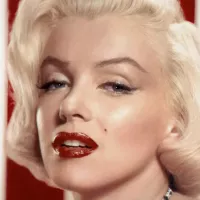
Marilyn Monroe was an iconic American actress and model who...

The stock market is where buyers and sellers trade stocks...
The Union of Soviet Socialist Republics USSR existed from to...
Trending
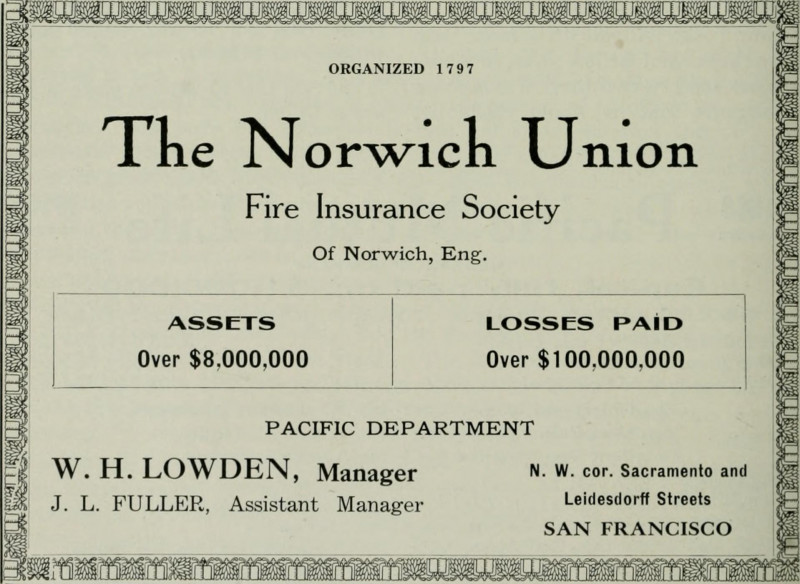
1 hour ago Zurich Insurance to Acquire Beazley in a Landmark $11 Billion Deal

24 minutes ago Chwali?ska and Kawa Shine in Antalya: Polish Tennis Players Achieve Notable Wins

24 minutes ago Cazzie David discusses her new book 'Delusions' and the writing process.

4 hours ago Warriors face play-in, Curry's injury raises concerns, Kerr lowers expectations, Moody's role?
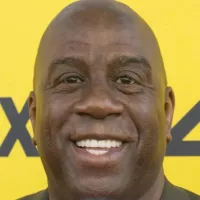
2 hours ago Michael Jordan's NASCAR impact: Antitrust lawsuit, 23XI Racing, and historic career.
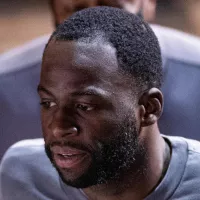
4 hours ago Stephen A. Smith criticizes Draymond Green's comments on Nico Harrison as unfair.
Popular

Jesse Jackson is an American civil rights activist politician and...

Hillary Diane Rodham Clinton is a prominent American politician lawyer...

Jim Carrey is a Canadian-American actor and comedian celebrated for...

XXXTentacion born Jahseh Dwayne Ricardo Onfroy was a controversial yet...

Michael Joseph Jackson the King of Pop was a highly...

Kashyap Pramod Patel is an American lawyer who became the...
